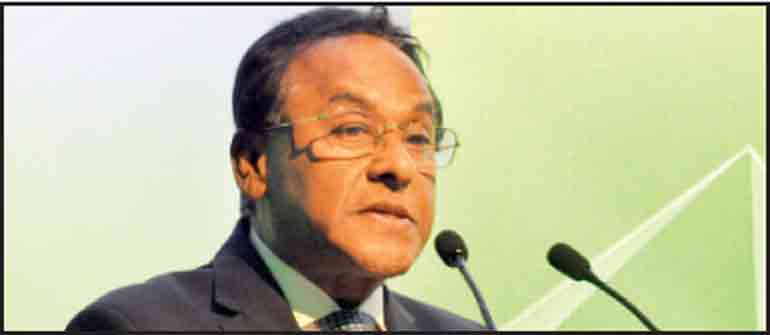Wednesday Feb 18, 2026
Wednesday Feb 18, 2026
Wednesday, 26 November 2025 00:26 - - {{hitsCtrl.values.hits}}

THASL outgoing President M. Shanthikumar
The Hotels Association of Sri Lanka (THASL) outgoing President M. Shanthikumar on Monday in his final address to Government and members called for stronger global promotion, clearer regulations and investment-friendly policies to safeguard the sector’s future.
Delivering his final speech before handing over leadership to Asoka Hettigoda at THASL’s 60th anniversary Shanthikumar said the dominance and contribution of formal-sector hoteliers “cannot be underestimated,” noting that the industry continues to be the country’s largest private-sector contributor to tourism development, revenue and employment.
He highlighted that hotels generate the highest tax and levy income to the Government from the private sector, including significant contributions through the Tourism Development Levy (TDL).
“The hotels employ over 70% of Sri Lanka’s tourism workforce and have invested over $ 15 billion over the past 60 years. Beyond capital investments, member hotels collectively spend billions of rupees annually on overseas promotions and millions on training to keep staff aligned with international standards,” he pointed out.
He underscored that THASL’s mandate has remained unchanged for six decades; to advocate for policies that safeguard the sustainability of the accommodation sector, which brings in the highest volume of foreign exchange.
“Sometimes this does not go down well with Governments, but sustaining our hotel product and the workforce is our responsibility,” he stressed.
Shantikumar expressed confidence that tourism is on track to surpass its all-time record arrivals by end-2025, attributing current momentum to the “conducive environment” created under the leadership of President Anura Kumara Dissanayake.
He said Sri Lanka is once again seen as a safe and secure destination, including for solo female travellers. The appointment of an inter-ministerial committee and a Presidential Task Force with private-sector representation, he added, signals a clear commitment to strengthening the industry.
However, he also outlined several critical concerns requiring Government attention. Foremost among them is the need for a strong global destination-marketing campaign to compete with rival destinations.
“Without proper positioning, Sri Lanka risks increasing tourist numbers without earning sufficient foreign exchange and faces the threat of over-tourism,” he warned.
He also urged faster development of the MICE segment to absorb Colombo’s large inventory of rooms and to contribute at least 25 percent of overall tourist arrivals.
In addition, Shantikumar called for robust regulatory frameworks covering licencing, taxation, foreign exchange compliance, health and safety standards, and registration of all accommodation units.
Formally designating tourism as a ‘service export,’ he said, would be a vital step for long-term sustainability.
Encouraging foreign investment in hotel development and tourism-related products through investor-friendly policies remains another priority for the association, he added.
“THASL has already submitted its proposals to the Government in line with a request from the President, and hope these will be taken forward through the Presidential Task Force,” he said.
He concluded his address by thanking the Tourism Minister, senior Government officials, and Sri Lanka Tourism leadership for their support. He also extended his appreciation to the THASL Vice Presidents, Management Committee membership, and Treasurer Sanjeewa Anthony for their contributions during his tenure.
A special note of thanks was offered to industry veteran Hiran Cooray “for advice that has been truly beneficial.”